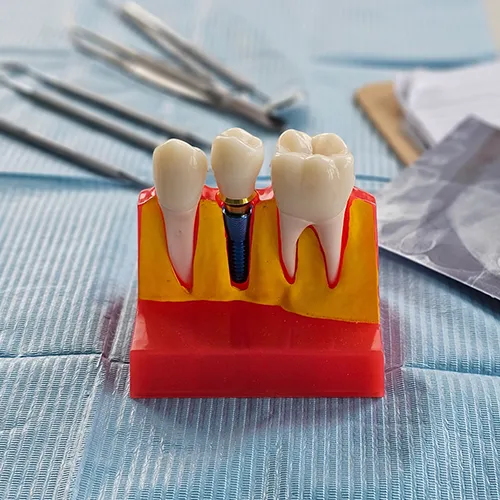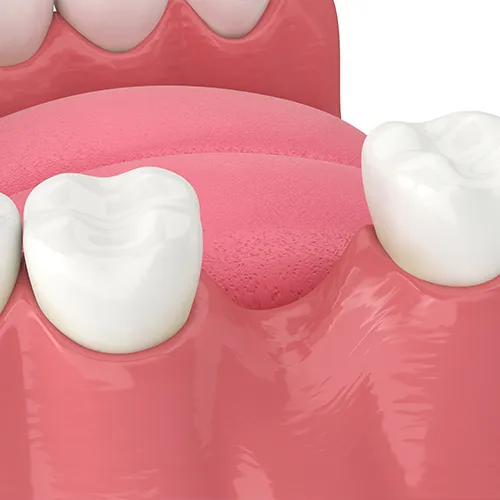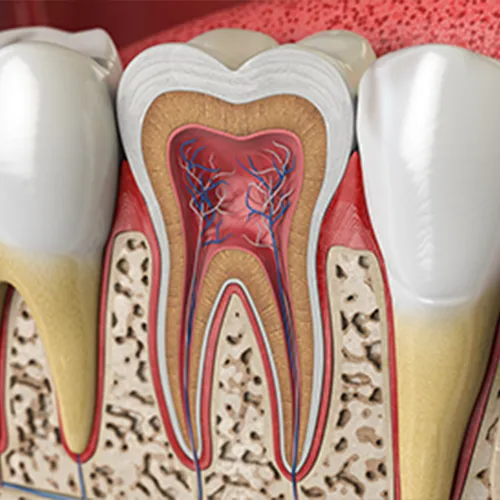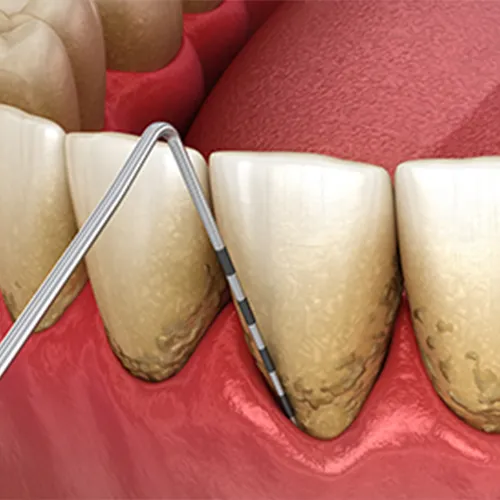Restorative Dentistry, Implant Dentistry
Choosing the Right Dental Implants for You
Dental implants are one of the most significant advances in modern dentistry. They don’t just replace missing teeth; they restore your confidence, your bite, and your ability to enjoy meals without hesitation. If you’ve ever wondered what your options are when it comes to dental implants, you're not alone. The world of implants is more versatile than most people realize.
At Complete Health Dentistry, we often meet patients who are surprised to learn there’s more than one kind of implant. Each type is designed with different needs and lifestyles in mind. Whether you’re missing a single tooth or several, there’s likely an implant solution that fits your situation perfectly. In this blog, we’ll walk you through the types of dental implants available, why they matter, and how you can decide which option is best for you.
What are the main types of dental implants?
Dental implants are typically categorized based on how they’re placed in the jawbone, the materials they’re made from, and their intended purpose. The most common types include:
1. Endosteal Implants: These are the most commonly used dental implants today. They’re shaped like small screws and surgically placed directly into the jawbone. After the surrounding bone heals around the implant, a process called osseointegration, a crown, bridge, or denture is attached.
Who are they for? Endosteal implants are ideal for patients with healthy jawbones and good overall oral health. They offer strong support and can last for decades with proper care.
Pros:
- High success rate
- Stable and long-lasting
- Feels and functions like a natural tooth
Considerations: Healing time can be a few months, and patients need adequate bone density for placement.
2. Subperiosteal Implants: Instead of being placed into the jawbone, subperiosteal implants sit on top of the bone but underneath the gum tissue. A metal framework is used to support the artificial teeth.
Who are they for? This option is typically used for patients who don’t have enough healthy jawbone and either cannot or do not want to undergo bone grafting.
Pros:
- Avoids the need for bone grafting
- Suitable for patients with bone loss
Considerations: Subperiosteal implants are used less frequently today because of lower long-term stability compared to endosteal implants.
3. Zygomatic Implants: This is a more complex and specialized type of implant used in cases where the patient has severe bone loss in the upper jaw. Instead of anchoring in the jawbone, zygomatic implants are placed in the cheekbone (zygoma).
Who are they for? These are typically reserved for patients who have lost a significant amount of upper jawbone and are not candidates for traditional implants.
Pros:
- Avoids the need for bone grafting or sinus lifts
- Can support full arch restorations
Considerations: This is a highly specialized procedure and should only be done by experienced implant dentists or oral surgeons.
4. Mini Dental Implants (MDIs): Smaller in diameter than standard implants, mini implants are often used to stabilize lower dentures or replace smaller teeth.
Who are they for? Patients who may not have enough bone for standard implants but still want a fixed solution.
Pros:
- Minimally invasive
- Faster healing time
- Cost-effective
Considerations: Not suitable for every case. They may not offer the same long-term durability as full-sized implants.
5. All-on-4 and Other Full Arch Solutions: This technique uses four (sometimes six) implants to support a full arch of replacement teeth. The implants are strategically angled and placed to maximize existing bone and eliminate the need for bone grafting in many cases.
Who are they for? Patients who have lost all or most of their teeth in one or both arches.
Pros:
- Fewer implants needed
- Immediate function with a temporary set of teeth
- Natural-looking and stable
Considerations: Requires detailed planning and an experienced implant team.
How do I know which dental implant is right for me?
The answer depends on several factors, including your oral health, bone density, how many teeth need replacing, and your personal preferences. Here's a closer look at what we consider when helping patients make a choice:
- Bone Quality: The strength and volume of your jawbone determine whether you’ll need bone grafting or if certain implants like zygomatic or mini implants may be better options.
- Health Conditions: Certain medical conditions such as uncontrolled diabetes, gum disease, or a history of smoking can affect your healing and eligibility.
- Budget and Timeline: While all implants are long-term investments in your health, some options cost more than others. Full arch solutions like All-on-4 may offer more value than multiple single implants.
- Lifestyle and Goals: If you’re looking for something quick and minimally invasive, mini implants might suit you. If you want maximum stability and longevity, traditional endosteal implants may be the better choice.
Ultimately, the best implant is the one that fits your unique situation, not just medically, but personally. A thorough consultation is the only way to get a clear, customized answer.
What are dental implants made of?
The materials used in dental implants play a big role in their durability, biocompatibility, and appearance. Here are the most common options:
Titanium Implants: Titanium has been the gold standard in implant dentistry for decades. It’s strong, lightweight, and integrates well with bone. In fact, the body readily accepts titanium, making it one of the most reliable materials for implants.
Benefits:
- High success rate
- Excellent osseointegration
- Long lifespan
Note: In rare cases, patients with metal allergies or sensitivities may need to explore alternative materials.
Zirconia Implants: Zirconia is a ceramic material that’s metal-free and tooth-colored. It’s becoming more popular among patients seeking a holistic or more aesthetic option.
Benefits:
- Natural appearance
- Hypoallergenic
- Resistant to corrosion
Considerations: Zirconia implants are relatively newer and have slightly less long-term research than titanium ones, but they’ve shown promising results.
Are dental implants really worth it?
We get this question a lot, and the answer is almost always yes. Dental implants offer unmatched stability and can prevent the jawbone from shrinking, a common side effect of missing teeth. They also don’t rely on surrounding teeth for support, unlike bridges, and they help keep your bite aligned over time.
Patients often tell us that getting implants was one of the best health decisions they ever made. The ability to chew properly, smile freely, and enjoy meals again is hard to put a price tag on.
What should I expect during the dental implant process?
Getting a dental implant is not a one-visit procedure, but the steps are clear and well-tested. Here’s a general idea of what to expect:
- Initial Consultation: We’ll evaluate your teeth, gums, and jawbone using imaging and a thorough exam. We’ll talk through your options and build a plan just for you.
- Placement: The implant post is placed into the jawbone, typically under local anesthesia. If bone grafting is needed, that may happen first or during this step.
- Healing Time: Over several weeks or months, your implant integrates with your bone.
- Abutment & Restoration: Once healed, we’ll place a small connector (called an abutment), followed by your custom crown, bridge, or denture.
- Aftercare: With routine brushing, flossing, and checkups, your implant can last a lifetime.
Ready to Take the First Step?
If you’ve been thinking about dental implants, there’s no better time to explore your options. Whether you’re missing one tooth or many, Complete Health Dentistry is here to help you find the right fit. We combine advanced technology with personalized care to make sure you feel confident, informed, and supported every step of the way.
Let’s talk about your smile goals and what implant solution fits your lifestyle best. Schedule your appointment today and let’s get started.











